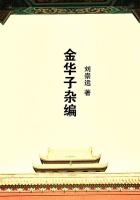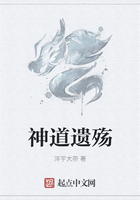Henry II. (1547-59), who succeeded on the death of Francis I. had no difficulty in allying himself with the German Protestants, and in despatching an army to assist Maurice of Saxony in his rebellion against the Emperor, while at the same time taking every precaution against the spread of heresy at home. He established a new inquisition department presided over by a Dominican for the detection and punishment of the Huguenots, and pledged the civil power to carry out its decisions. In this attitude he was supported strongly by the University of Paris, which merited the heartiest congratulations of Julius III. by its striking defence of Catholic doctrines, especially the necessity of obedience to the Holy See. Yet notwithstanding all measures taken against them the Huguenots continued to increase in numbers. The Bishop of Navarre went over to their side, as did a certain number of the clergy, and the attitude of some of the others was uncertain. So strong did the Huguenot party find itself in France that a Synod representing the different reformed communities was held in Paris in 1559, at which the doctrine and ecclesiastical organisation introduced by Calvin into Switzerland were formally adopted. The accession of Elizabeth to the throne in England, and the hopes entertained in France of detaching that country from Spain made the French government less anxious to adopt severe measures against the Protestants. After the Peace of Cateau Cambresis (1559), when Henry determined to make a great effort to extirpate Calvinism, he was prevented by death.
Francis II. who lived only one year (1559-60) succeeded, and he was followed by Charles IX. (1560-74). The latter of these was a mere child, and during the minority the government of the country was in the hands of Catharine de' Medici, his mother, who became regent of France. At the court two parties struggled for supremacy, the family of Guise which stood for Catholicism, and the Bourbons who favoured Calvinism. The regent, not being a woman of very decided religious convictions or tendencies, set herself to play off one party against the other so as to increase her own power, and in this way a splendid opportunity was given to the Calvinists to pursue their religious campaign. Several of the more powerful people in the kingdom favoured their schemes solely out of hatred to the Duke of Guise[3] and with the hope of lessening his power. Amongst the prominent Calvinist leaders at this period were Antoine de Bourbon,[4] King of Navarre, and his brother Louis Prince de Conde, the Constable de Montmorency and Admiral Coligny,[5] the recognised head and ablest leader of the Huguenot party.
Taking advantage of the bitter feeling aroused amongst their followers by the execution of some of their number, the Huguenots formed a conspiracy (Tumult of Amboise 1560) to seize the young king, to overthrow the Duke of Guise, and to set up in his place the Prince de Conde. The Calvinist theologians, having been consulted about the lawfulness of such an enterprise, declared that the conspirators might proceed without fear of sinning so long as a prince of the royal family was amongst their leaders. The plot was discovered, however, before their plans were matured, and several of those who took part in it were put to death. Instead of weakening, it served only to strengthen the family of Guise. Francis, Duke of Guise, was appointed a lieutenant-general of France with the title of saviour of his country, while his brother, the Cardinal of Lorraine, became chief inquisitor and one of the papal legates appointed for the reform of abuses in France. The King of Navarre, to whom Pius IV. addressed a personal appeal, confessed his unfaltering loyalty to the Catholic religion, although at the same time he was doing much to spread Calvinism in his own dominions and throughout the South of France.
Though the royal edict against the Calvinists, published in 1560, was severe, yet little was done to enforce its terms except against those who had recourse to arms. The Prince de Conde organised a new conspiracy and attempted to secure Lyons. He was arrested, tried, and condemned to death, but before the sentence could be carried out Francis II. passed away.
A new grouping of parties now took place. The regent, Catharine de'
Medici, alarmed at the growing influence of the Guise faction, threw the whole weight of her influence into the scales in favour of the Prince de Conde and of the Huguenots. A royal edict was issued suspending all prosecutions against heretics and ordering the release of all prisoners detained on account of their religion (1561). The regent wrote to the Pope praising the religious fervour of the Calvinists, and calling upon him to suppress several Catholic practices to which the heretics had taken exception. She professed herself anxious for a national council to settle the religious differences, and failing this she insisted upon a religious disputation at Poissy. The disputation ("Colloquy" of Poissy) took place (1561) in presence of the young king, his mother, and a large number of cardinals, bishops, and ministers of state. The Catholics were represented by the Cardinal of Lorraine, the Jesuit General Lainez, and other distinguished clergy, while the Calvinists sent a large number of their ablest leaders, conspicuous amongst whom were Theodore Beza and Francois de Morel. The principal doctrines in dispute, notably the authority of the Church and the Eucharist, were discussed at length without result. Then a small committee, composed of five theologians representing each side, was appointed, but without any better success. In the end, as no agreement could be secured, the conference was dismissed.













